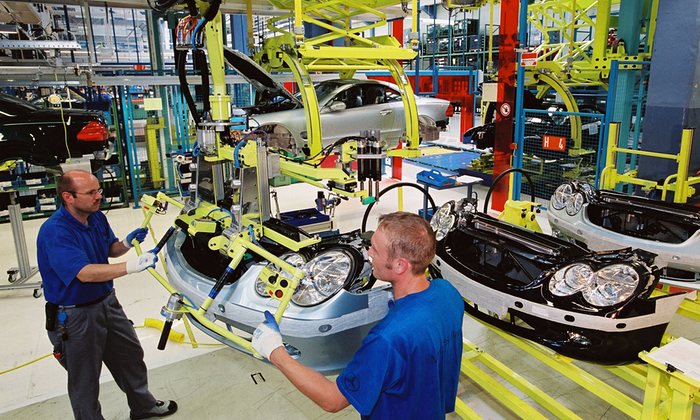Markets
Euro-Area Economic Outlook Improves as Orders Fuel Hiring

- Euro-Area Economic Outlook Improves as Orders Fuel Hiring
The euro-area economy started the year on a solid footing, with rising orders bolstering job creation, according to IHS Markit.
A composite Purchasing Managers’ Index remained at 54.4 in January — the highest since 2011 — with growth in manufacturing outpacing that in services for an eighth month, it said on Friday. A Jan. 24 estimate was for a 54.3 reading.
The survey echoes a series of recent reports showing confidence in the 19-nation euro economy is improving after growth accelerated at the end of last year. The inflation rate rose to levels effectively in line with the European Central Bank’s goal and unemployment dropped to the lowest level since 2009.
“Faster growth of new business and an upturn in confidence about the year ahead to the highest since the region’s debt crisis bodes well,” said Chris Williamson, chief business economist at IHS Markit. “The impressive pace of employment growth should also help drive consumer spending higher in coming months, further boosting the economy.”
Officials have acknowledged the strengthening recovery even though they maintain a cautious tone in assessing economic prospects amid political risks related to Donald Trump’s presidency in the U.S. and national elections this year in a number of euro-area nations.
While private-sector growth slowed somewhat in Germany, Italy and Spain last month, the recent recovery in France gathered momentum, Markit said.
In the euro area, higher commodity prices, increased import costs on the back of a weaker euro and supplier price hikes pushed a gauge of input costs to the highest level in more than 5 1/2 years. Reflecting improved pricing power, companies responded by increasing their charges.
“While inflationary pressures are rising — with tentative signs of core inflation also picking up amid stronger demand — ECB rhetoric may soon turn more hawkish,” Williamson said. “However, any actual change to the policy stance still looks unlikely until at least late-2017 due to the heightened political uncertainty.”